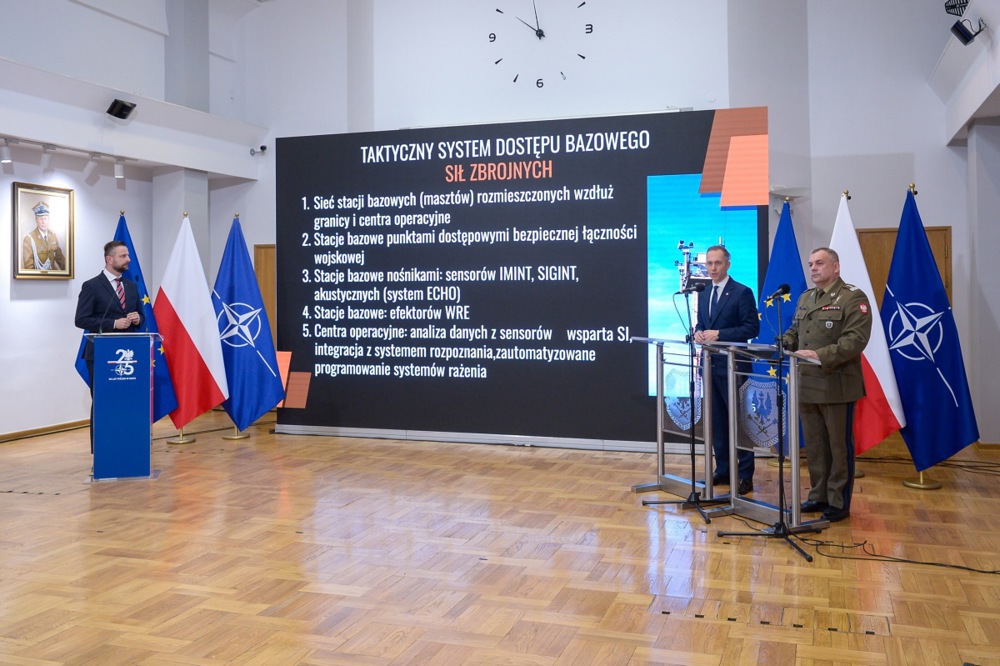Polish Prime Minister Donald Tusk has announced he will suspend the ability of migrants to claim asylum in the country, insisting that the move is now necessary for him to “regain control” of the situation.
Speaking on October 12, he said the right to claim asylum should in particular be suspended on Poland’s border with Belarus, the location of “hybrid warfare” mass migration attacks perpetrated by the Lukashenko regime.
Tusk has demanded that the European Union back him over the proposal.
Tusk declared that a new immigration policy to “regain control and ensure security” will address the situation on the Belarus border, at which tens of thousands of migrants from Asia, Africa and the Middle East have been trying to cross.
“One of the elements of the migration strategy will be the temporary suspension of the right to asylum on our territory,” said Tusk.
Tusk justified his stance on asylum by arguing that if “there is an increasing awareness that the border is impassable, no one will die trying to cross it.”
“I will demand recognition of this decision in Europe because we know very well how Lukashenko, Putin, people smugglers use this right to asylum contrary to the essence of that right,” he added.
Under international law, countries are obliged to offer the right to apply for asylum and Poland has already been accused by the Council of Europe and the UN of violating these rights on its borders.
Migrants have been encouraged and helped to cross illegally the border into Poland by the Belarusian regime of Alexander Lukashenko. Many of those caught crossing have been in possession of Russian visas.
Most of those who do manage to cross the border then try to reach Germany, which has led the German government to introduce controls on the border with Poland, but the number of asylum seekers in Poland has risen this year.
Tusk however criticized Germany for having “for years attracted a lot of migrants, but completely ignored the aspect of integration” adding that, “If there are too many people of other cultures, then this native culture feels threatened”.
“If someone wants to come to Poland, they must respect Polish standards, Polish customs, they must want to integrate,” Tusk said.
But the opposition Law and Justice (PiS) party are sceptical about whether Tusk’s intentions are anything other than to posture on migration.
PiS MP Michał Woś took to platform X to write that the Polish PM should have “vetoed the migration pact within the EU when he had the chance,” and claimed that Tusk’s announcement on asylum was a cover for the fact that the government is “preparing to open a large number of migration centres in Poland to cope with the existing and expected migrants.”
Woś was referring to the fact that on October 11 the Polish government announced that it had agreed to set up 49 EU Asylum, Migration and Integration Fund resourced centres.
These centres, authorities claim, will help the country cope with the ongoing migration wave by “providing standardised services to newly arrived migrants and to serve as platforms for cooperation between local authorities, the government and NGOs”.
According to the Tusk government, the concept of the centres should be based on the twin idea that “we demand and we support”, meaning they will provide immigrants with solutions that will help them integrate better into Polish society.
The government also hopes that, by establishing the obligation for registration, it will be possible better to assess the number and geographical distribution of migrants in the country.
The newly-planned centres, the idea of which was developed during the lifetime of the former PiS administration, will function as “one-stop shops” for migrants, making it possible for foreigners to access various services in a single place offering Polish language and culture courses, psychological support, legal assistance and information and advice for migrants.
Poland has in recent years experienced an unprecedented wave of immigration, as for the last seven years running it has issued the largest number of first residence permits for immigrants from outside of the EU than any other member state.
There were over 1.1 million foreign subjects registered in Poland’s social security system, making up nearly 7 per cent of all those covered.





